Out of 141,854 Virginia entrepreneurs surveyed in 2016 by the U.S. Census Bureau about their firms, 31% didn’t have an exit strategy; 15% planned to walk away from the business; and 12% planned to sell or transfer ownership to a co-owner.
Another 20% of Virginia entrepreneurs surveyed planned to sell their businesses to someone who was not already an owner of the business. Such was the way things played out for Notch, a technology consulting firm founded in Richmond in December 2014. About three years later, Notch was acquired for an undisclosed sum by Capital One Financial Corp., which was a Notch client at the time. Most of Notch’s employees joined the bank’s Center for Machine Learning.
“I saw the opportunity to carry on what our focus was in a venue or a setting that had a lot of really talented people and a clear mission,” says Paul Hurlocker, a Notch co-founder and former CEO. “It’s still an environment where people can drive change, and there’s just an entrepreneurial spirit.”
David Castillo, managing vice president of machine learning at Capital One, said in a statement that the company is focused on rethinking how banking works and building customer experiences based on data and enabled by technologies like machine learning.
“Prior to Notch joining the Capital One team, we developed a strong relationship partnering on key projects to advance our machine learning transformation,” said Castillo. “Ultimately, we saw that Paul [Hurlocker] and team would be a natural fit to come on board.”
Hurlocker, now a vice president at Capital One’s Center for Machine Learning, says Notch was born out of a desire to create a company with a challenging technical environment that would attract recent graduates. Notch was founded by Hurlocker and David Derr, who also now works at Capital One; the pair had crossed paths while working at Amentra, a consulting startup that later was acquired by Red Hat, a Raleigh, N.C.-based software company.
“Ultimately, what we talked about was the opportunity to create a company that was focused on machine learning and data engineering,” says Hurlocker.
Derr’s brother, Matt, joined Notch in 2015 as a partner after he finished his doctorate in machine learning from University of California, San Diego. The company that became Notch would go on to deliver over 60 projects to more than 30 clients before the Capital One acquisition, Hurlocker says.
Born in Wilmington, N.C., Hurlocker grew up in Atlanta before moving to Northern Virginia. He studied economics at Radford University, where he began teaching himself how to code. After graduating from Radford in 1996, Hurlocker worked as a software engineer in the Atlanta area, mostly in the travel industry. His work included building early web-based travel booking sites. He returned to Virginia to work in Richmond for Amentra as the company’s 20th employee. Working there got him interested in “the entrepreneurial journey,” says Hurlocker.
After Red Hat, Hurlocker had stints at Affinion Group, a marketing and advertising firm, and PlanG, a charity donation startup. He is married and has two children.
To observers like Todd Nuckols of Lighthouse Labs, a startup accelerator in Richmond, it’s not unusual for Virginia startups to be acquired by other companies. Nonetheless, he sees that pattern as the exception rather than the rule. Nuckols says Notch’s acquisition exemplifies the way Richmond’s startup market has expanded.
“It says that we have the talent to innovate in the technical landscape and be successful at building companies that are attractive to external purchasers, either for their talent or for the marketplaces that they build and represent,” says Nuckols. “We’re no longer just a professional-services, IT town. We can build startups, and they can do meaningful work and be attractive to other markets and other buyers.”
Virginia Business sat down with Hurlocker for an interview in February in a conference room at Capital One’s West Creek Campus in Goochland County. Below is a transcript of the conversation that’s been edited for clarity and length.
Virginia Business: Why was the acquisition by Capital One a good move for Notch?
Hurlocker: We created a pretty high-power team, in my opinion, and I saw the opportunity to carry on what our focus was in a venue or a setting that had a lot of really talented people and a clear mission. It’s really appealing that Capital One is still run by its founder.
Being in Richmond, you’re generally aware of what Capital One is doing. They’ve been pushing the envelope for quite some time. I guess we have been pushing the envelope now with the move to the cloud, and that started some time ago, and investments in key areas and technology that enable machine learning at enterprise scale; that’s an environment that makes people like us really excited about building solutions.
VB: One thing I hear sometimes about the Richmond startup scene is the feeling there isn’t enough capital to really grow in Richmond the way you might in another bigger market. Do you find that to be true?
Hurlocker: We were bootstrapped, so we had no external investors. I do think there have been time periods where it can be difficult. I know there are groups of investors that have organized, too. Just having a single point of contact, I think, is huge.
Before, it was all about working for larger companies. You never really see people depart. Now, I think you’re seeing a healthy mix of people deciding to go after something a little later in their career, which is frankly what I did, or coming straight out of an incubator relatively new out of school and doing that.
VB: What advice would you give to other entrepreneurs?
Hurlocker: I’ve had time to think about all of that because when you’re in it, it’s pretty crazy but good. You’re just so engrossed in it and that’s the way it should be. I read this book, “The Hard Thing About Hard Things,” by Ben Horowitz. I think that it’s cliché, but he basically was like, “There is no formula.” It’s about how you react, how you keep your energy and your focus, but no one can tell you what that journey is like. I think that you have to think about services, companies and products of companies differently in the technology realm.
We believed that, basically, the viability of our business was us being able to grow it and get opportunities. That was our proof that we should grow: It was that we could go and build our business our way. That’s hard to scale sometimes with products. Sometimes it takes a different approach there. It’s all-encompassing and it impacts the people in your life.
I had a family when the journey started. We all went through it together. It was pretty awesome and they were very supportive.
VB: What is machine learning?
Hurlocker: It’s a merging of math and engineering, essentially, to do things like to predict whether there’s been a fraudulent activity on an account or to determine how to best engage a customer when they’re on the mobile app or our website, trying to determine why a customer may be calling in and getting them to service more quickly. Another way to talk about it is everyone has some experience with a voice like Siri; those types of interactions use machine learning as well.
VB: What’s the goal of machine learning?
Hurlocker: It’s still a nascent early field, but I think what it’s all about is augmenting and enriching the human experience.
VB: Since the dawn of time, there have been skeptics of new technologies. Are there hazards with machine learning that society should be worried about?
Hurlocker: One of our areas of focus is around explainability and I think that’s good. Explainability is basically showing how you came to certain decisions or predictions or how you basically created certain experiences, and not just trusting that the model is a black box and it’s going to make the right decision. We’re heavily invested through university partnerships and internal dedicated R&D teams to really drive that.
We need to understand the power of these things and do them in a responsible way. We have used data science since the beginning of the company, and this, in many ways, is an evolution of that type of thing. It’s basically like the merging of technology and data science at really large scale with big datasets and things like that. Ultimately, we have explain-ability and fairness baked in.
VB: Does the rise of artificial intelligence and machine learning and its potential impact on children worry you at all as a parent?
Hurlocker: I tend to be optimistic about the power of these things. Generally, we are in control, and it’s up to us how these things are used. When I say “we,” I mean us as a society. I think it’s important to think about these things. There are things we need to be mindful of, but I believe in the value that technology brings, and in particular, that machine learning is bringing. I don’t really have those fears.


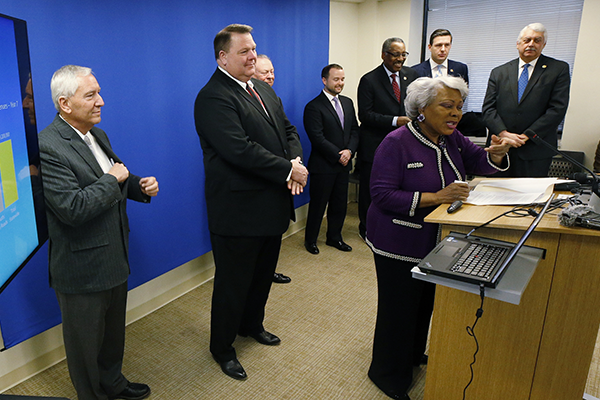 Introduced by state Sen. L. Louise Lucas, a longtime Democrat from Portsmouth, SB1126 authorized casino gaming to be regulated by the Virginia Lottery Board. The bill limited casino gaming to Portsmouth, Norfolk, Richmond, Danville and Bristol. However, the legislation goes into effect only if it’s re-enacted in the 2020 General Assembly session. Each locality would be limited to having one casino and would have to hold a referendum to approve any casino proposal. Only casino proposals that represent a minimum capital investment of $200 million would be eligible to obtain an operator’s license.
Introduced by state Sen. L. Louise Lucas, a longtime Democrat from Portsmouth, SB1126 authorized casino gaming to be regulated by the Virginia Lottery Board. The bill limited casino gaming to Portsmouth, Norfolk, Richmond, Danville and Bristol. However, the legislation goes into effect only if it’s re-enacted in the 2020 General Assembly session. Each locality would be limited to having one casino and would have to hold a referendum to approve any casino proposal. Only casino proposals that represent a minimum capital investment of $200 million would be eligible to obtain an operator’s license.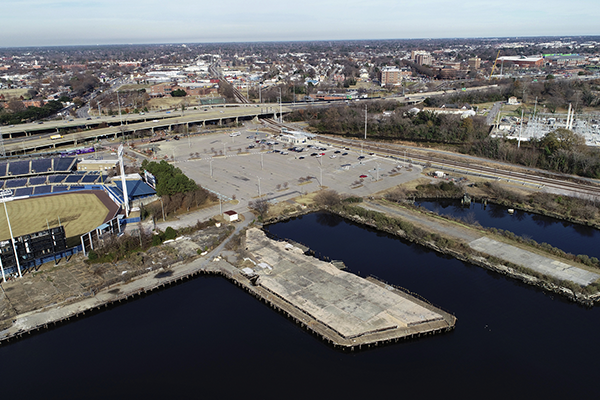 Regardless whether Virginia legalizes commercial casinos, the Pamunkey Indian Tribe, which was federally recognized in 2015, could open a casino through a regulatory process with the National Indian Gaming Commission, says tribal spokesman Jay Smith. The Pamunkey are working on plans to open a resort with a casino in partnership with Norfolk on about 20 acres owned by the city on the Elizabeth River near Harbor Park Stadium. For casino games, federal law requires a compact between a tribe and state government that addresses revenue sharing.
Regardless whether Virginia legalizes commercial casinos, the Pamunkey Indian Tribe, which was federally recognized in 2015, could open a casino through a regulatory process with the National Indian Gaming Commission, says tribal spokesman Jay Smith. The Pamunkey are working on plans to open a resort with a casino in partnership with Norfolk on about 20 acres owned by the city on the Elizabeth River near Harbor Park Stadium. For casino games, federal law requires a compact between a tribe and state government that addresses revenue sharing.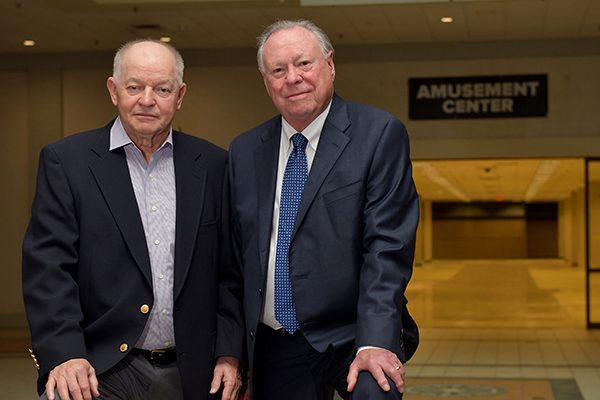 At the other end of the state, two local businessmen — United Co. Chairman and CEO Jim McGlothlin and Par Ventures President Clyde Stacy — have floated plans to redevelop a defunct shopping mall in Bristol into a resort and casino. They envision a casino, a hotel, restaurants and other amenities.
At the other end of the state, two local businessmen — United Co. Chairman and CEO Jim McGlothlin and Par Ventures President Clyde Stacy — have floated plans to redevelop a defunct shopping mall in Bristol into a resort and casino. They envision a casino, a hotel, restaurants and other amenities.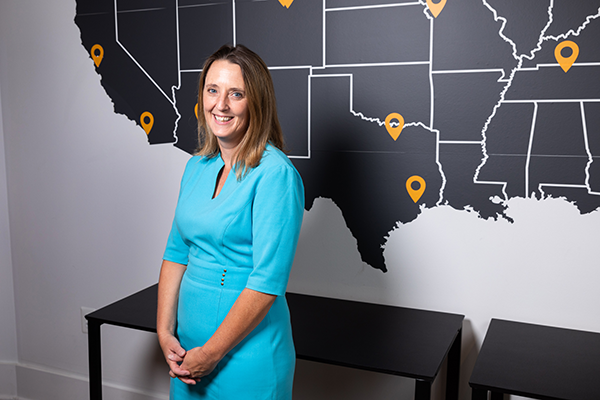 About a third of 2017 home sales in the commonwealth went to millennials, according to an analysis by Virginia Realtors Chief Economist Lisa Sturtevant. Nationally, millennials accounted for 37% of all homebuyers from June 2017 to June 2018 — making them the most active generation of homebuyers for the sixth year in a row, according to the National Association of Realtors’ 2019 Home Buyer and Seller Generational Trends study.
About a third of 2017 home sales in the commonwealth went to millennials, according to an analysis by Virginia Realtors Chief Economist Lisa Sturtevant. Nationally, millennials accounted for 37% of all homebuyers from June 2017 to June 2018 — making them the most active generation of homebuyers for the sixth year in a row, according to the National Association of Realtors’ 2019 Home Buyer and Seller Generational Trends study.
 “One of the things we've seen over the last couple years is that the Virginia economy has accelerated,” McNab says. “The pickup in the pace of growth is evidenced in the decline in the unemployment rate not only statewide but also across metro areas in Virginia.”
“One of the things we've seen over the last couple years is that the Virginia economy has accelerated,” McNab says. “The pickup in the pace of growth is evidenced in the decline in the unemployment rate not only statewide but also across metro areas in Virginia.” Peter McHenry, associate professor of economics and public policy at the College of William & Mary, says the health of the economy is drawing people into the labor force.
Peter McHenry, associate professor of economics and public policy at the College of William & Mary, says the health of the economy is drawing people into the labor force.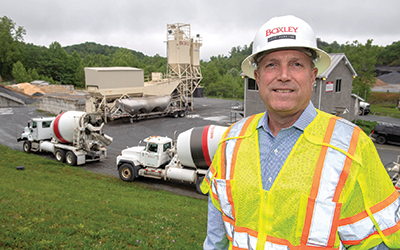 So, just how bad is the stretch of I-81 that runs from Winchester to Bristol in western Virginia? Jeff Perkins, president of Boxley Materials Co. in Roanoke, won’t let his college-age children drive home for Thanksgiving on I-81, which first began to be built in 1957. Between 2013 and 2017, more than 11,000 crashes occurred in the I-81 corridor. (In the same period, I-64 saw more than 21,000 crashes and I-95 saw more than 25,000 crashes). The unpredictability of traffic congestion caused by accidents translates into delays for commuters and shipments.
So, just how bad is the stretch of I-81 that runs from Winchester to Bristol in western Virginia? Jeff Perkins, president of Boxley Materials Co. in Roanoke, won’t let his college-age children drive home for Thanksgiving on I-81, which first began to be built in 1957. Between 2013 and 2017, more than 11,000 crashes occurred in the I-81 corridor. (In the same period, I-64 saw more than 21,000 crashes and I-95 saw more than 25,000 crashes). The unpredictability of traffic congestion caused by accidents translates into delays for commuters and shipments.